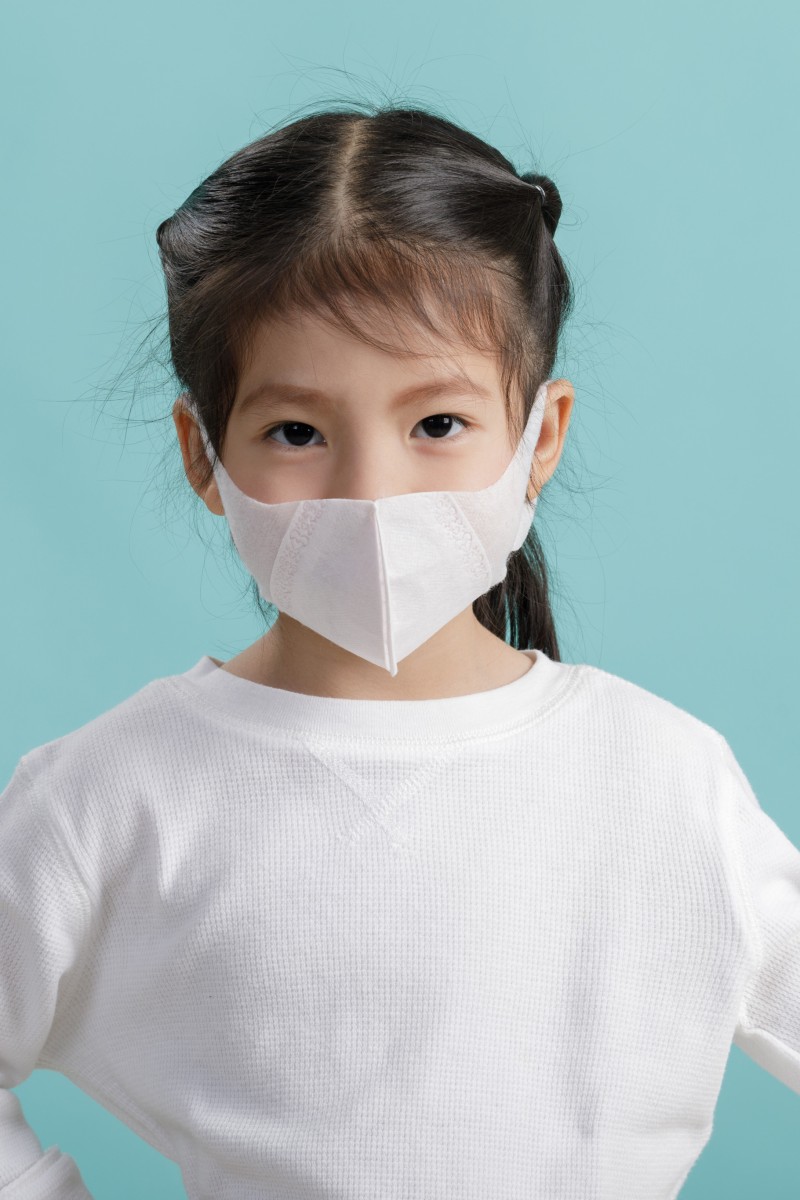
Face off: Has wearing masks in school had a negative effect on students’ social skills?
- Each week, two of our readers debate a hot topic in a showdown that does not necessarily reflect their personal viewpoints
- This week, they debate whether young people’s interpersonal skills have suffered because of masks
 What impact has wearing a mask had on children and their social skills? Photo: Shutterstock
What impact has wearing a mask had on children and their social skills? Photo: ShutterstockIf you are interested in joining future Face Off debates, fill out this form to submit your application.
For: Celeste Lau, 11, Holy Angels Canossian School
Wearing a mask has been compulsory for three years. You might think that everyone has adapted to communicating with a mask, especially students who talk to their friends and classmates at school. But is this actually true?
Wearing masks has prevented students from fully socialising. Many students, especially younger ones, may have never seen their buddies’ faces without their masks. Studies have shown that kids have to see full faces to learn to identify emotions as well as learn languages. If a student is wearing a mask, then their friends cannot see them smile or frown. It can be harder to hear and understand them, and it is much more difficult to recognise facial expressions and emotions.
Should Hong Kong’s vaccine pass be extended to include children aged 5-11?
As a result, students will not know how to communicate with others or pick up on essential non-verbal communication. This could create a lot of obstacles for their interpersonal relationships in the future.
Masks also pose a huge challenge for students with special educational needs. For children with hearing impairments or autism, facial expressions and mouth movements are the keys to communication. Being unable to see these features means they need to work harder to process what is being said. In addition, face masks also affect their ability to recognise faces, lip-read and use other non-verbal cues.
Masks could also cause students to become more introverted. Since they cannot pick up on social cues because of the mask, they may be afraid to communicate with others. They may not want to talk to people and could become unsociable. It would make them feel lonely and could even cause social and emotional problems, like anxiety and depression.
Wearing masks at school can have many negative effects on a student’s social and emotional growth and development. Maybe it’s time to reconsider whether we need to keep wearing them in the classroom.
Students debate whether children under age 3 should get the Covid vaccine
Against: Nayab Qureshi, 17, Hong Kong University of Science and Technology
Masks might hide your smile, muffle your voice and make lip reading impossible. Does this mean that wearing masks hinders a person’s social skills? Not exactly, since not being able to see someone’s face is not the end of the world.
Let’s view this from a scientific perspective. Our brain is powerful, complex, and flexible; it can adapt to almost any situation. Take blindness, for example. According to NPR, areas of the brain which are usually devoted to visual information are used to process sounds in people who are blind, and they often develop superior abilities in understanding spoken sentences. If the brain can adapt to blindness, it can easily figure out how to communicate while wearing a mask.
Some people are concerned about masks impending a student’s language development. Studies have shown that masks muffle sound – the extent of which depends on the type of mask. But it is also worth noting that there’s no clear evidence that this severely impairs a child’s ability to communicate. In fact, people can compensate by talking more slowly and loudly and by using hand gestures to deliver their message.
Mental health is also a major factor in building a child’s social skills. For example, kids who were doing remote learning experienced increased levels of anxiety and depression because they weren’t at school with their peers. But now learning spaces are open again, and for kids, wearing a mask means they can be protected against Covid-19 while still mingling with their peers, which improves their mental health and therefore, social skills.
Should a fourth Covid shot be mandatory?
Blaming masks for depression, anxiety, and delayed social skills in kids stems from a natural desire to protect them, but masks aren’t the problem: Covid is. The purpose of the mask is to reduce all the other traumas of coronavirus. Whether a student’s social skills are negatively affected when wearing a mask is not the mask’s fault.
